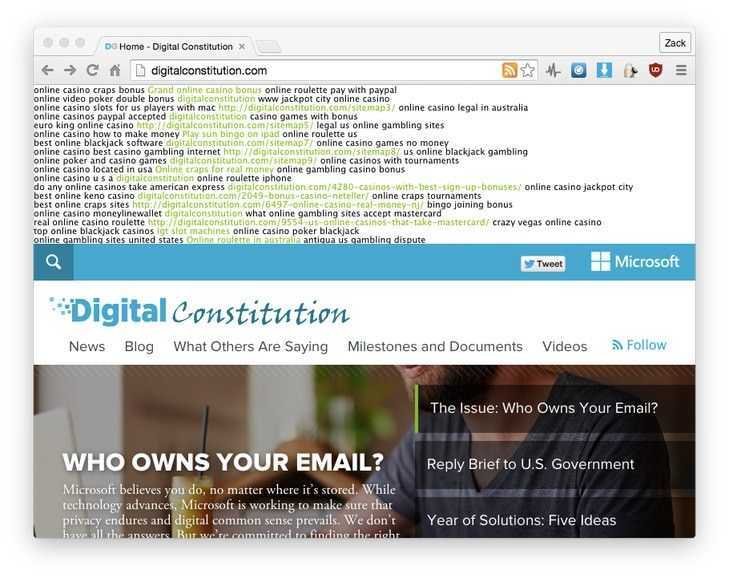Do you know that Microsoft constantly urges its customers to immediately update the applications running on their computers and their operating system system, σαν ένα τρόπο προστασίας από τυχόν επιθέσεις που προσπαθούν να εκμεταλλευτούν παλιά vulnerable points.
It turns out that in its rush to convince customers to do this, Microsoft forgot to do it itself in a by clicking here of which is designed to help the company express its opinions on the programs επιτήρησης της κυβέρνησης των ΗΠΑ.
The Microsoft Digital Constitution website was violated this morning.
The Digital Constitution began operations in 2013, following the shocking revelations of Edward Snowden about US government surveillance programs. By using this website, the company not only expressed its opinions on this approach, but also tried to convince its customers that it is doing its best to protect them.
Earlier today, the site presented an unusual picture as links from an online casino appeared, and too many hidden keywords that are commonly used to rank better in search engine results.
Needless to say, Microsoft does not need to follow these practices and, as ZDNet reports, the company's website is said to have been hacked either by an individual or a group that has not yet claimed the attack.
The ironic thing is that Microsoft used an old version of WordPress for her site. The latest version of WordPress is 4.2.2, and Microsoft used 4.0.5.
Microsoft directly reinstated the site in its original form without the malicious content. It remains to be seen if someone asserts the attack.





